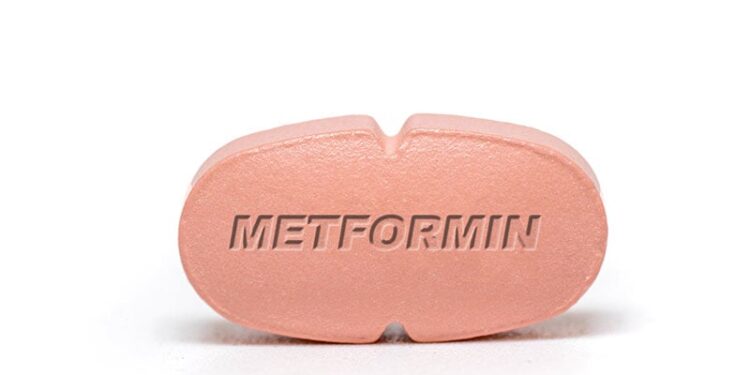TOPLINE:
Women with polycystic ovary syndrome (PCOS) who received metformin during pregnancy experienced a reduced rate of maternal infections, particularly viral infections. However, offsprings who were exposed to metformin in utero faced a high long-term risk for allergies and eczema.
METHODOLOGY:
- Researchers in Norway conducted post hoc analyses of two randomised controlled trials and one follow-up study to examine immunologic effects of metformin in pregnant women with PCOS and in offsprings exposed to the medication in utero.
- They analysed the data of 634 pregnant women with PCOS who had been randomly assigned to receive either metformin (n = 316; median age, 30 years) or placebo (n = 332; median age, 30 years) from the first trimester to delivery.
- The effect of metformin exposure in utero was studied in 145 offsprings, with 74 and 71 being exposed to metformin and placebo in utero, respectively.
- Maternal clinical evaluations were performed at baseline and at regular intervals through gestational week 36, with self-reported maternal infections being recorded throughout pregnancy, delivery, and postpartum.
- Offsprings were evaluated for the diagnosis of any allergic condition such as asthma or eczema at a median age of nearly 8 years.
TAKEAWAY:
- Women receiving metformin had fewer overall infections during pregnancy than those receiving placebo (odds ratio [OR], 0.68; 95% CI, 0.50-0.93), particularly viral infections (OR, 0.71; 95% CI, 0.51-0.99); the protective effect of metformin against viral infections was significant among women with obesity alone.
- Offsprings exposed to metformin in utero showed higher rates of allergy (OR, 4.83; 95% CI, 1.47-21.8) and eczema (OR, 2.42; 95% CI, 1.14-5.33) than those exposed to placebo in utero.
- Neither offspring BMI nor maternal infections during pregnancy modified the association between prenatal metformin exposure and the elevated risk for allergic conditions in offsprings.
IN PRACTICE:
“In the present study, metformin reduced the incidence of maternal infections during pregnancy while it increased the incidence of eczema and allergies in the offspring, suggesting that maternal infections might act as a protective factor,” the authors wrote.
“The adverse effects observed in the offspring highlight the need for caution when considering metformin treatment during pregnancy,” they added.
SOURCE:
This study was led by Mariell Ryssdal, Norwegian University of Science and Technology, Trondheim, Norway. It was published online on August 11, 2025, in BJOG: An International Journal of Obstetrics & Gynaecology.
LIMITATIONS:
The original studies were not designed to assess metformin’s effects on infections or allergic diseases. Maternal infections were self-reported and classified on the basis of symptoms without pathogen confirmation. Asthma, eczema, and allergies were diagnosed by doctors but reported by mothers without verification through medical tests.
DISCLOSURES:
This study was supported by The Liaison Committee for Education, Research, and Innovation in Central Norway; The Research Council of Norway; Novo Nordisk Foundation; and other sources. The authors reported having no conflicts of interest.
This article was created using several editorial tools, including AI, as part of the process. Human editors reviewed this content before publication.
Source link : https://www.medscape.com/viewarticle/prenatal-metformin-shows-mixed-effects-pcos-2025a1000lff?src=rss
Author :
Publish date : 2025-08-19 12:00:00
Copyright for syndicated content belongs to the linked Source.





